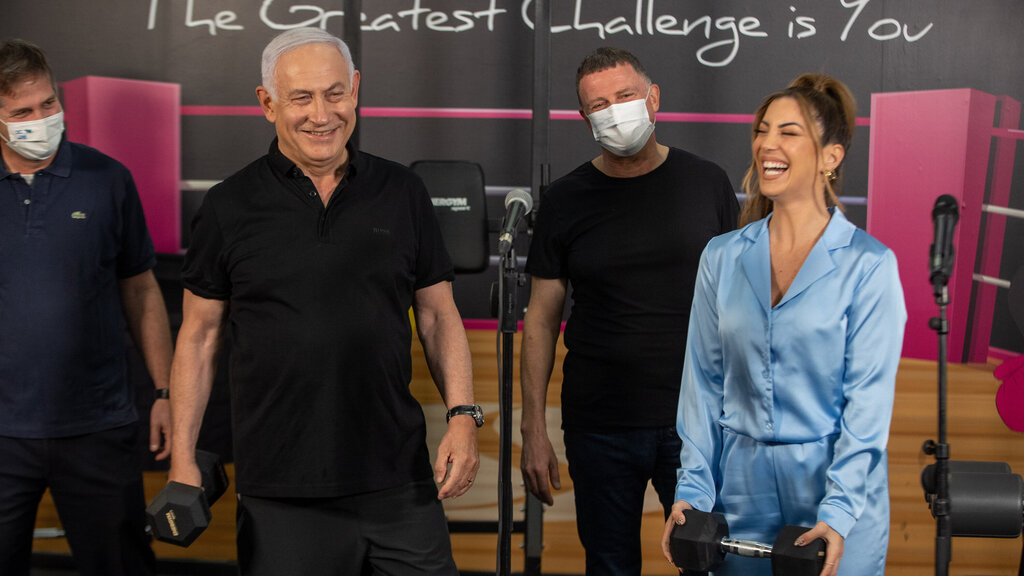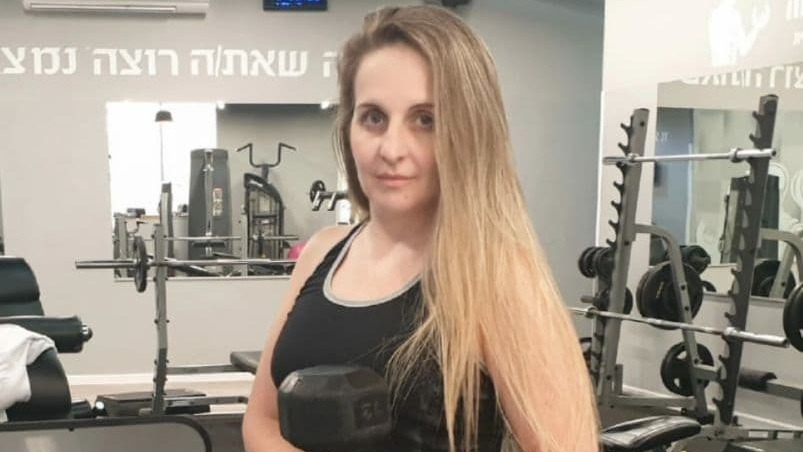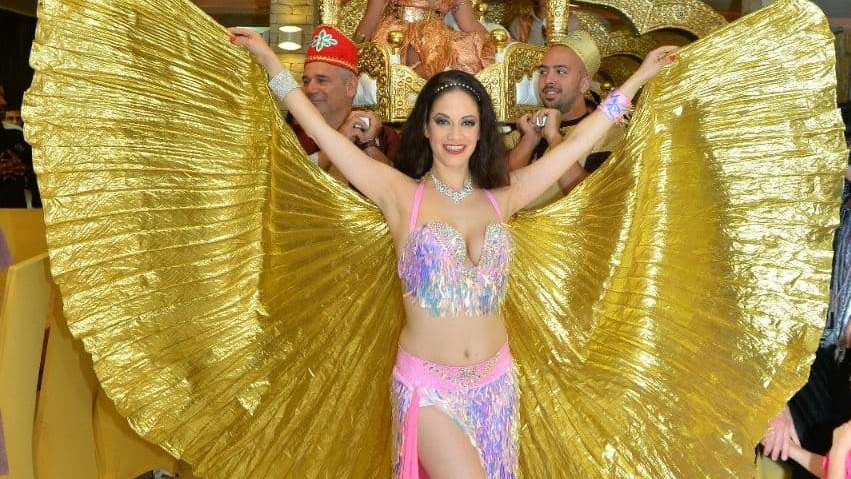Getting your Trinity Audio player ready...
Many Israeli businesses, including high street shops and gyms, finally reopened Sunday after almost two months of inactivity due to the third pandemic-induced closure.
While the reopening of said businesses is a relief to business owners who have suffered critical financial losses throughout the pandemic, many believe they will have to shutter their business before long, just as they were forced to do after the first and second closures.
3 View gallery


Prime Minister Benjamin Netanyahu and Health Minister Yuli Edelstein attend the reopening of a gym in Petah Tikva on Sunday
(Photo: Tal Shahar)
One such skeptic is Hagit Caspi, the owner of the PULP paper products store in Tel Aviv.
"We're opening, but joy is not in my lexicon right now,” says Caspi.
“The first time you open you are happy, but by the third time you are skeptical. We will follow common sense, wear masks inside the store and so on, and see how it goes. I do not understand why we the high street shops have been closed for so long.”
Among the businesses that opened Sunday are leisure venues such as gyms and theaters, which are limited to people who have had both doses of the vaccine or have presumed immunity after recovering from COVID.
These people have been issued a “Green Pass” to show that they can enter such premises.
Despite this precautionary measure, leisure center owners also feel a sense of dread and insecurity.
"We had to close because of the coronavirus a year ago and we've barely been open in the last year,” says Lia Elbaz Finkelberg, the owner of the SkyGym fitness center in Jerusalem.
“To meet our commitment to our customers we took out loans. We are very much looking forward to opening, but there is confusion - the government is expecting us to open the business when nothing is clear."
According to Elbaz Finkelberg, one of the main issues faced by gyms is the fact that their main customer base is comprised of young adults who were only recently offered the vaccine.
"Most of our customers are young people, they were given the option to get vaccinated just two weeks ago, so they will only get the Green Pass in another two weeks," she said. "In the meantime, we will open, bring back our employees and will have to pay additional costs.”
Stefania, a belly dancer and artist who makes her living from performances in weddings and other large gatherings, which too were prohibited as part of the regulations, has also been through a difficult year.
“I was waiting to return to perform in full, but then in March the closure began," she says.
"I went back to performing a week after I gave birth but then another closure began.
“When it was permitted, I worked at very small events, abiding by the restrictions. I even performed for elderly audiences to relieve their loneliness.”



